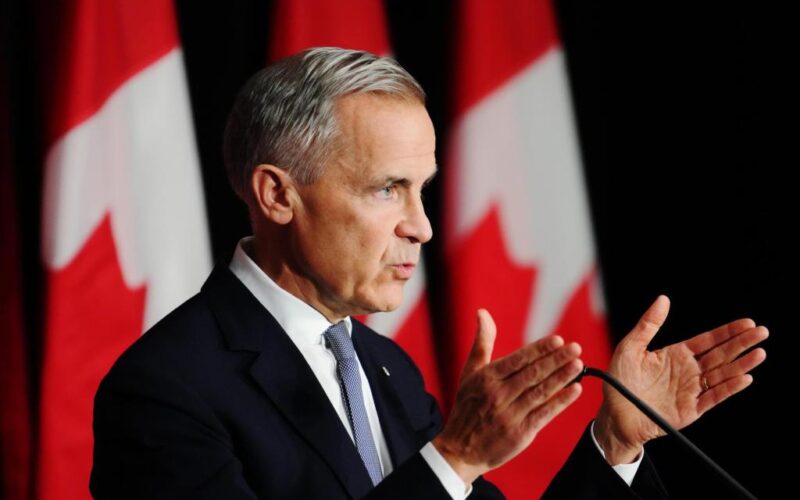By ROB GILLIES, Associated Press
TORONTO (AP) — Prime Minister Mark Carney set a goal for Canada to double its non-U.S. exports in the next decade, saying American tariffs are causing a chill in investment.
Carney, who will release his government’s budget on Nov. 4, said Wednesday many of Canada’s former strengths — based on close ties to America — have become vulnerabilities.
“The jobs of workers in our industries most affected by U.S. tariffs — autos, steel, lumber — are under threat. Our businesses are holding back investments, restrained by the pall of uncertainty that is hanging over all of us,” Carney said.
U.S. President Donald Trump has been threatening Canada’s economy and sovereignty with tariffs, most offensively by claiming Canada could be “the 51st state.”
Carney reiterated in an evening address to Canadians that the decades-long process of an ever-closer economic relationship between the Canadian and U.S. economies is now over.
“The U.S. has fundamentally changed its approach to trade, raising its tariffs to levels last seen during the Great Depression,” Carney said.
“We have to take care of ourselves because we can’t rely on one foreign partner.”
Tensions between the neighbors and longtime allies have eased slightly in recent months as Carney tries to get a trade deal with Trump, but tariffs are taking a toll, particularly in the aluminum, steel, auto and lumber sectors.
More than 75% of Canada’s exports go to the U.S.
“We are re-engaging with the global giants India and China,” he said.
Canada is the top export destination for 36 U.S. states. Nearly $3.6 billion Canadian (US$2.7 billion) worth of goods and services cross the border daily.
Canada’s free trade deal with the U.S. is up for review in 2026.
Carney called Canada an “energy superpower” and said the country has third largest reserves of oil and the fourth largest reserves of natural gas in the world.
About 60% of U.S. crude oil imports are from Canada, and 85% of U.S. electricity imports are from Canada.
Canada is also the largest foreign supplier of steel, aluminum and uranium to the U.S. and has 34 critical minerals and metals that the Pentagon is eager for and investing in for national security.
“I will always be straight about the challenges we have to face and the choices we must make,” Carney said. “To be clear, we won’t transform our economy easily or in a few months — it will take some sacrifices and some time.”
Originally Published:








